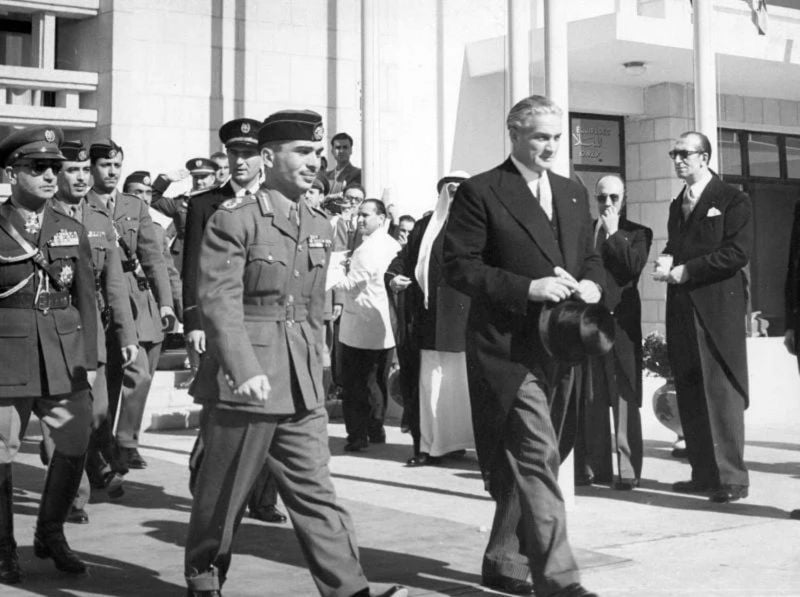
Lebanese President Camille Chamoun, right, and Jordan’s King Hussein in Beirut, 1955. (Credit: ©Archives L’OLJ)
Lebanon is often referred to as a country ever subject to external influence, where embassies and consulates hold sway. While this clichéd assertion may allow local stakeholders to shirk their responsibilities, it also reflects the ascendancy of external powers in major Lebanese elections, especially presidential elections. Since 1943, no president can claim to have been elected without a regional and international green light. Over the decades, several foreign powers have had a say in the election of a Lebanese head of state, be it the United Kingdom, France, Syria, Iran, Egypt or the United States. Once elected, a Lebanese president’s mandate may depend on regional factors. This story is one of power games, diplomatic interference, and precarious geopolitical balancing acts, which L'Orient-Le Jour intends to tell in a 13-part series. This second installment sheds light on how Camille Chamoun’s term was disrupted by the United Kingdom, then the United States and the growing influence of Gamal Abdel Nasser’s Egypt.
L'Orient Today / By Mounir RABIH, 21 January 2023 11:11

Lebanese President Camille Chamoun, right, and Jordan’s King Hussein in Beirut, 1955. (Credit: ©Archives L’OLJ)